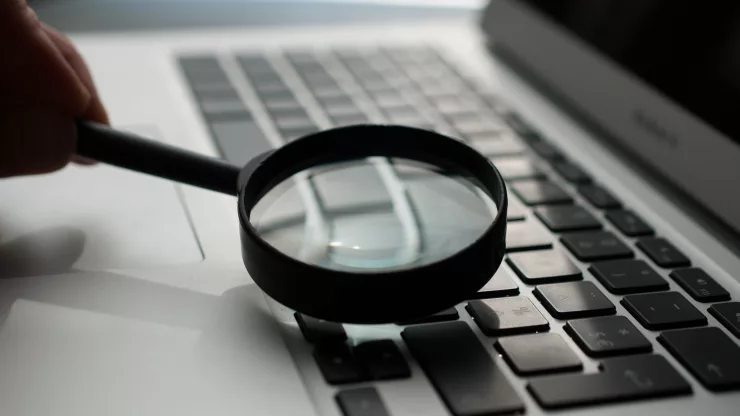1. FactCheck.org
FactCheck.org, a project of the Annenberg Public Policy Center, consistently produces the highest-rated articles according to The Factual’s algorithm.
This means that articles are exceptionally well researched, incorporate extensive evidence and sourcing, and use minimally biased language.
FactCheck.org is a member of the International Fact-Checking Network (IFCN) and an official fact-checking partner of Meta.
2. Reuters Fact Check
Reuters, a globally recognized news organization, also offers a high-quality fact-checking service.
The fact-checking portion of Reuters’ website scores in the top 2% of all sites measured by The Factual.
Reuters Fact Check is part of the IFCN and a fact-checking partner of Meta.
3. Washington Post Fact Checker
The Washington Post Fact Checker focuses specifically on fact-checking major events in mainstream U.S. politics. Its articles incorporate extensive evidence to back up their claims.
The Fact Checker is a member of the IFCN.
4. Associated Press Fact Check
The Associated Press (AP) Fact Check publishes weekly round-ups of misinformation and occasional in-depth looks at specific issues.
AP Fact Check scores considerably higher than AP’s overall content and is a member of the IFCN and a fact-checking partner of Meta.
5. CheckYourFact
CheckYourFact, a for-profit subsidiary of the Daily Caller, provides fact-checking on news articles as well as viral stories spreading through social media and the internet.
CheckYourFact is part of the IFCN and a fact-checking partner of Meta.
6. Lead Stories
Lead Stories uses big data to track stories that are gaining traction on social media and the internet and respond quickly with fact-checking services.
Lead Stories is part of IFCN and a fact-checking partner of Meta as well as ByteDance, the Chinese company that owns TikTok.
7. USA Today Fact Check
USA Today Fact Check focuses on politics, health, science, and other topics in the news, striving to maintain a geographic and ideological balance in its fact checks.
USA Today Fact Check is a fact-checking partner of Meta and a member of the IFCN.
8. Politifact
Politifact, a fact-checking service originally started by the Tampa Bay Times, now operates as part of the Poynter Institute on Media Studies.
Politifact is part of the IFCN and is a fact-checking partner of Meta.
9. The Dispatch Fact Check
The Dispatch Fact Check, a relatively new publication on the fact-checking scene, promises to report without concern for whether the facts prove inconvenient to any party or politician.
The Dispatch is part of the IFCN and a fact-checking partner of Meta.
10. Snopes
Snopes, one of the first online fact-checking sites, focuses on debunking false stories on the internet and across popular culture.
Snopes was previously a member of both IFCN and Meta’s fact-checking program.
While these sites provide a valuable service, it’s essential to use caution and solid media literacy practices when using them.
Reading a variety of sources on any topic can be the best route to ensuring a well-rounded, accurate understanding of any issue.
What is a fact-checking website?
A fact-checking website is a platform that investigates the claims made in news articles, speeches, interviews, and other sources of information to determine their accuracy.
They use well-researched and unbiased information to clarify what is verifiably known about a specific topic.
Why are fact-checking websites important?
Fact-checking websites are important because they help to combat misinformation and disinformation.
They provide a reliable resource for people to verify the accuracy of the information they encounter.
How do fact-checking websites work?
Fact-checking websites use a variety of methods to verify information.
This often involves researching original sources, consulting with experts, and using logic and reason to analyze the claims being made.
Are fact-checking websites biased?
While some fact-checking websites may exhibit some form of bias, the best ones strive to minimize this as much as possible.
They aim to provide accurate and unbiased information, regardless of political affiliation or personal beliefs.
How can I use a fact-checking website?
You can use a fact-checking website by searching for a specific claim or topic on their platform.
Many of these websites also provide resources and tips for how to fact-check information yourself.
Can I trust the information on fact-checking websites?
While fact-checking websites strive to provide accurate information, it’s always a good idea to consult multiple sources and use your own critical thinking skills.
Remember, no source is 100% infallible.
What is the Best Site For Fact Checking?
The best site for fact-checking can vary depending on the specific topic or claim you’re looking to verify.
However, according to The Factual’s algorithm, FactCheck.org consistently produces the highest-rated articles, meaning they are exceptionally well-researched, incorporate extensive evidence and sourcing, and use minimally biased language.
Other notable fact-checking sites include Reuters Fact Check, Washington Post Fact Checker, and Associated Press Fact Check.
It’s always a good idea to use multiple fact-checking sites to get a well-rounded view of the information.
Where can I fact check?
You can fact check on a variety of online platforms dedicated to verifying the accuracy of information. Some of the most reputable fact-checking websites include:
- FactCheck.org
- Reuters Fact Check
- Washington Post Fact Checker
- Associated Press Fact Check
- Snopes
- Politifact
- USA Today Fact Check
- Lead Stories
- CheckYourFact
- The Dispatch Fact Check
Remember, it’s always a good idea to use multiple fact-checking sites to get a well-rounded view of the information.

I am a fun fact enthusiast and creator of Facts On Tap.
I love to share my knowledge and curiosity with readers and inspire them to learn something new every day.
When I’m not writing, I enjoy traveling, reading, and playing trivia games with my friends.





